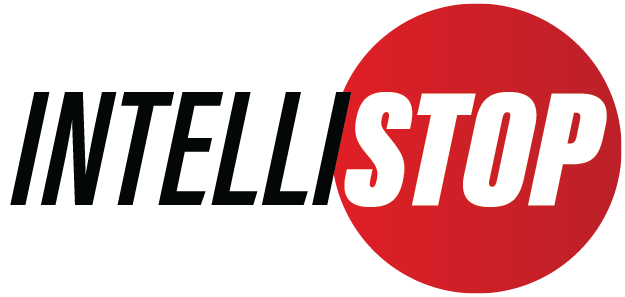Here is what you need to know:
- On Dec 17th, 2020 a hardcopy of Intellistop's formal request for a temporary exemption arrived at the FMCSA.
- On June 14th, 2021, or 179 days later, the FMCSA opened a 1-month long forum for public comment in the Federal Register—where the transportation industry showed overwhelming support to grant Intellistop the temporary exemption.
- After 420 more days of silence from the FMCSA, Intellistop filed with the DC Court of Appeals (Sept. 7th, 2022) in hopes of a resolution to this wildly overdue request—a six-figure cost for a small, woman-owned startup.
- On Oct. 7th, 2022 the request for temporary exemption was denied by the FMCSA.
- So, the FMCSA held Intellistop’s temporary exemption request hostage for a total of 659 days of a 180 day maximum set by congress—that’s more than three and a half times the length allowed.
- This comes after the FMCSA granted 4 other very similar temporary exemptions (Grote Industries, Groendyke Transport, Waste Management, and the NTTC), and regardless of the fact that the transportation industry is in support of granting the temporary exemption.
- While fleet owners understand how important Intellistop is to the safety of their fleets, some are reluctant to use it in fear of a violation from the FMCSA—costing the transportation industry countless time, money, and lives.
The FMCSA argues Intellistop’s exemption request is distinguishable from previous requests that it granted because it is “potentially far broader in scope” in the sense that it would cover more vehicles. This is speaking to the fact that Intellistop only takes a few minutes to install, could be adapted at the manufacturing level, and as an after-market product.
- This is essentially the FMCSA penalizing Intellistop because its product may be more likely to get adopted by the industry.
- Further, the similar and recent exemptions granted to the NTTC and Grote Industries are industry-wide temporary exemptions.
- Lastly, and overbearingly, this conclusion seems contradictory to the pro-safety purpose of the statute in question (49 CFR 393.25).
The official denial letter states: "FMCSA shares TSEI’s (Transportation Safety Equipment Institute’s) concerns regarding the unknown safety effects from sudden and industry-wide proliferation of a variety of non-conforming lighting. For these reasons, FMCSA concludes that Intellistop failed to demonstrate that its device is likely to provide the equivalent level of safety as 49 CFR 393.25(e).”
- This sounds like TSEI, a paid membership organization, all but made the decisions for the FMCSA.
- TSEI's website has Grote Industries and Peterson Manufacturing as their top two member companies—these are transportation lighting manufacturers, and direct competitors to Intellistop.
- Grote Industries was granted a blanket exemption for pulsing brake lights by the FMCSA.
- Peterson Manufacturing is "proud to announce" they helped drive the FMCSA's decision to grant NTTC's temporary exemption and “the immediate availability of its LED Auxiliary Brake-Strobe Light and Harness System, specifically designed to meet the specifications of the FMCSA’s 49 CFR 393.25 five-year exemption.”
- TSEI having any weight or say in the FMCSA's decision is a conflict of interest which should never have been considered. This sends a message that you can buy the FMCSA through TSEI.
- Further, TSEI never contacted Intellistop to inquire about their product, and never asked for a test module. They have no idea what they are talking about, and yet have colluded with the FMCSA to deny Intellistop's request.
- NTTC, Grote Industries, and Waste Management did not demonstrate their devices will provide the same level of safety as 49 CFR 393.25, yet were granted exemptions.
- "Non-conforming lighting" does not apply to Intellistop, since Intellistop doesn't add any additional lighting. It simply uses the preexisting lighting which already conforms to size, location, and color. No new lights are added. All the Intellistop module does is drop the voltage on the preexisting brake and clearance lights from 12v to 8v, four times in about 1 second. The lights are always illuminated and they return to original function after the one second cycle. In the event of a module failure, the lights default to normal operation.
- Meanwhile, Groendyke Transport, NTTC, Grote, and Waste Management all use a variety of additional lights, in either amber or red (or a combination of both) that can flash, pulse, and strobe a variety of times and patterns, and can be placed in multiple locations.
SUMMARY
- The FMCSA's argument doesn't actually apply to Intellistop, as it doesn't do what they state it does.
- FMCSA is penalizing Intellistop for creating a useful and life-saving product that would get used, meanwhile allowing 4 similar exemptions without issue. This is in contradiction to their pro-safety purpose and stance.
- The FMCSA is allowing TSEI, a paid membership organization, to sway their decision making.
- TSEI's top members are two of Intellistop's major competitors, creating an even greater conflict of interest verging on nefarious.
FMCSA claims that there are “data deficiencies” with respect to lighting systems that would replace rather than supplement existing lights.
- Meanwhile, the FMCSA contradictorily acknowledges NHTSAs research showing that flashing brake lights decrease accidents.
- Again, Intellistop is not replacing lights. Intellistop is enhancing the existing lights making them multifunctional—similar to how stop, tail, and turn lights came into existence.
- Regardless, the FMCSA does not cite any evidence showing that this difference even matters. In fact, a robust and extensive 2009 NHTSA study on pulsing lamps found the most success at preventing accidents when “all lamps” were flashed—which is the suggested way to utilize Intellistop.
- Further, the FMCSA didn’t require data from the 4 other companies (Groendyke, NTTC, Grote, and Waste Management) that were granted similar exemptions. It should be noted that the FMCSA isn't utilizing this time to track or collect data, in any way, for those 4 granted exemptions.
- In 2021, the FMCSA actually approached Intellistop about collecting data. Intellistop asked carriers if they would oppose data collection relating to Intellistop and they all said they had no issue with the collection. Intellistop reached back out to the FMCSA, and agreed to the collection of data. It was then that the FMCSA informed Intellistop that they couldn’t ask them to collect data when data collection was not a requirement of the other companies that were granted pulsing brake light exemptions.
- While the FMCSA acknowledges it is baseless in asking Intellistop for more information, it also penalizes Intellistop for not having it—meanwhile not penalizing the 4 other companies that have been granted similar exemptions.
- Moreover, the FMCSA should NOT need more data—NHTSA has been spending taxpayer money to extensively test flashing brake lights for 20+ years. That data consistently and overwhelmingly confirms that flashing brake lights reduce rear-end collisions.
SUMMARY
- The FMCSA says more data is needed, neglecting the 20+ years NHTSA has been providing data which supports the implementation of pulsing brake lights.
- FMCSA asked Intellistop for data. Intellistop agreed. FMCSA reneged, citing it would be unfair to ask it of Intellistop since it granted 4 other companies similar exemptions without such a requirement.
- FMCSA then penalizes Intellistop for not having data.
The FMCSA claims that “receipt and specific consideration by FMCSA of separate applications for exemption from individual motor carriers or motor carrier trade groups” would “more closely align FMCSA’s exemption granting practice with NHTSA."
- Nowhere does it say that the FMCSA and NHTSA must align in their exemption-granting practices.
- This is contradictory to how the FMCSA handled windshield mounted safety technologies. In which case they granted exemptions to: Bendix, Netradyne, J.J. Keller & Assoc., Samsara, Nauto Inc., Lynx Inc., Navistar Inc., SmartDrive System, Inc., Daimler Trucks North America LLC., and Hino Motors Manufacturing USA.
- After just 10 individual exemption requests, the FMCSA went one step further and amended the FMCSRs (Federal Motor Carrier Safety Regulations) to increase the area on the interior of commercial motor vehicle (CMV) windshields where certain vehicle safety technology devices may be mounted.
- No testing or data was used or needed to grant the windshield exemptions and to make this permanent change to the FMCSRs.
- This is probably due to the alarming number of exemption requests that would overwhelm the agency if they required individual companies to submit separate applications.
- There are currently 2,010,116 carriers (as of 11.02.2022) listed in the United States. It is unlikely that the FMCSA could handle even a fraction of a percent of motor carriers if they applied for an individual exemption to use Intellistop.
- If ten exemption requests were enough to warrant changing the FMCSR to accommodate the windshield mounted safety technologies, you would think that granting a five year temporary blanket exemption to Intellistop would more “closely align” with their practices.
SUMMARY
- The FMCSA claims that having individual motor carriers apply for exemptions is more in-line with their standards of practice. Meanwhile, doing the exact opposite on several occasions.
- Most notably, the FMCSA granted ten manufacturers temporary exemptions for windshield safety technologies, and then permanently updated the FMCSRs to align with the exemptions they granted.
- No data or testing was required from these companies to receive exemptions.
Pete Buttigieg
- US Secretary of Transportation.
- Noted for giving regular and impassioned speeches that align with the concept of granting Intellistop the exemption: "zero deaths," "DOT should be proactive in finding solutions," "private sector," "trying new technologies," and so on.
Robin Hutcheson
- Current FMCSA Deputy Administrator.
- Stalled Intellistop's exemption request for 261 of the 659 days.
- Helped write the NRSS (National Roadway Safety Strategy) document, which would seem to align with and support Intellistop's potential ubiquitous use.
- Claims to support women-owned businesses like Intellistop.
- Ultimately responsible for Intellistop exemption request denial.
- robin.hutcheson@dot.gov
Rationally speaking, it seems a 5-year temporary exemption for Intellistop would be the most ideal way to get results and data on pulsing brake lights and rear-end collisions.
After five years, if the data doesn’t prove that CMV’s safety was equivalent to or greater than before using Intellistop, then they do not have to renew the exemption—this is the reason temporary exemptions should be issued.
While the temporary exemption was denied to Intellistop, the FMCSA said they would give specific consideration to individual fleets seeking their own exemptions for use of the Intellistop module.
Any carrier that wishes to reduce rear-end collisions should request an exemption to use Intellistop.
Fleet owners: we understand safety scores are important and that you want to protect yours as much as possible. In light of this, we encourage you to do 2 things:
- Consider the potential if your rear-end collisions were reduced by 33% overnight, and 100% at railroad crossings. Would the reward of reducing accidents outweigh the potential lighting violation?
- Apply for an exemption with the FMCSA to use Intellistop, so you can eliminate the FMCSA's possible violation. Meanwhile, you protect your fleet.
We've made applying for an exemption simple and quick—allow us to walk you through the process step-by-step over the phone.
Data supports that pulsing brake lights reduce rear-end collisions by more than 33%.
- What would your fleet look like if the last 2 years had 1/3 less rear-end collisions?
- How many lives would have been saved? Injuries prevented?
- How much would it affect your bottom line?
- How much down-time would you save?
- How much would turnover have been reduced? How much time and money did your company spend on training new drivers?
- What impact would it have if 33% of your customers, who didn't get their shipments because of a rear-end collision, actually did get their shipment?
- How much would you save in insurance?
- Has your company been the victim of nuclear verdicts? Reducing the number of rear-end collisions means reducing the chance of catastrophic loss to your fleet.
You can do all the expensive driver training, and collision mitigation systems (front-end collision avoidance, lane departure, monitored cameras on drivers, software to disable the cell phones, and so on) you want:
- None of that can prevent other drivers from hitting your trucks.
Why Intellistop?
- Easily installs in under 5 minutes.
- Drastically increases eye-lead time.
- Maximized fleet and driver "up time."
- Made in the USA.
- Does NOT interfere with normal operation of vehicle electronics or brakes.
- L.E.D. and incandescent compatible.
- 5-year warranty against device fault or failure
- If a device ever fails, lights default to normal operation.
If interested in learning more, please reach out to us—we'd be happy to answer all of your questions.
If you'd like to apply for an exemption, we've made it as easy as possible using the resources below! We've prewritten a letter you can update with your company's information and included details on where and how to send it.
We understand it can be aggravating to get another "thing" added to your truck/trailer. Well, don't worry:
- It is installed in the nosebox of the trailer.
- It installs in 5 minutes, and is installed by technicians—not you.
- There are no additional steps required when doing your pre-trip inspection.
- It does not monitor you.
- You will operate your vehicle as you normally would.
- This product could SAVE YOUR LIFE and get you back home safely with 0 additional requirements from you.
References
Here you can view and download all of the important documents related to this issue.
Request an exemption
Contact us so we can walk you through this easy-to-do process. Let your voice be heard. Save your company countless time, money, and lives.
Here's what you'll need:
- Exemption request letter with all the important and required details included—we know all the details and can help you get yours done within minutes.
- Instructions on how to send the letter.
- We suggest printing the exemption request on your company's official letterhead.
- You will need to send 1 hard copy (certified mail) and 2 digital copies.
- Contact info on where to send the letters.
- Robin Hutcheson
FMCSA Deputy Administrator
1200 New Jersey Avenue SE
Washington, DC 20590-0001
robin.hutcheson@dot.gov
FMCSA Deputy Administrator
1200 New Jersey Avenue SE
Washington, DC 20590-0001
robin.hutcheson@dot.gov
- David Satula
FMCSA
Office of Carrier, Driver, and Vehicle Safety Standards
david.satula@dot.gov
FMCSA
Office of Carrier, Driver, and Vehicle Safety Standards
david.satula@dot.gov
ABOUT INTELLISTOP

Intellistop is a patent-pending product in the USA. It is also manufactured in the USA where it is hand-wired, hand-wrapped, and hand-tested to ensure exceptional quality.





